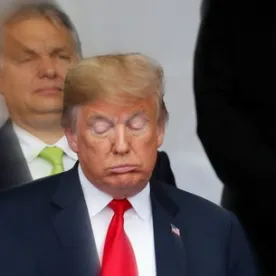With the 2020 presidential election underway, now is the time for businesses and organizations to consider the potential impacts of the next presidential administration’s policies and priorities. In the first installment of the K&L Gates 2020 election series, we examined former Vice President Joe Biden’s potential policy agenda if elected president. For our second installment, we highlight President Donald J. Trump’s potential policy priorities if he is elected to serve for a second term.
President Trump’s administration would have the advantage of a seamless transition as the incumbent administration. In fact, many federal agencies began preparations over the summer for a second term agenda through outreach to stakeholders. We anticipate that the Trump administration would continue to pursue a deregulatory agenda designed to amend or eliminate regulations that are considered ineffective, duplicative, or obsolete. Additionally, continued efforts to pursue administrative solutions would likely continue, especially if the dynamic on Capitol Hill makes it challenging to enact priorities of the administration through legislation.
As we look beyond the November election, it is important to begin considering and planning for the potential policy implications should President Trump be reelected. Below is a list of potential policy priorities that may be pursued during a second term:
-
COVID-19: The incoming administration would have to continue to focus on COVID-19 relief and economic recovery issues. Key areas of focus for the Trump administration would likely include development and distribution of a vaccine, continued economic recovery, ensuring the availability of personal protective equipment (PPE) for frontline workers, and the re-shoring of critical supply chains and manufacturing (such as pharmaceuticals, PPE, medical equipment, semiconductors, etc.).
-
Health Care: With the Supreme Court set to hear arguments on a pivotal case on the constitutionality of the Affordable Care Act, health care policy may again take center stage. While consensus on comprehensive health care reform continues to be debated within the Republican Party, President Trump’s priorities would likely include protecting individuals with preexisting conditions, lowering the cost of prescription drugs, curbing surprise billing, and lowering health care insurance premiums. The administration is likely to continue to pursue many of these priority issues through administrative action.
-
Tax: President Trump would likely push to make the tax cuts enacted under the Tax Cuts and Jobs Act permanent. In addition, he has expressed support for reducing the tax rates on long-term capital gains and for indexing capital gains for inflation, as well as lowering the middle class tax rate to 15 percent. He has also stated he plans to extend or forgive the employee payroll tax deferral instituted via Presidential Memorandum on 8 August 2020. President Trump would likely double down on opportunity zones by increasing funding and further expanding into economically distressed areas. Finally, President Trump has expressed a desire to create “Made in America” tax credits to encourage domestic job creation.
-
Infrastructure: President Trump has long advocated for rebuilding the nation’s infrastructure. Building on previously released legislative goals, the Trump administration would likely advocate for passage of a comprehensive infrastructure package focused on improving America’s roads, highways, airports, and smart grid. As the country recovers from the impact of COVID-19, this may be framed as an economic stimulus package to help create jobs. President Trump’s proposed second term agenda also indicates a focus on creating a national high-speed wireless Internet network.
-
Financial Services: President Trump would likely continue efforts that limit fiduciary considerations to “pecuniary” or financial-related issues, with a particular focus on limiting the ability to invest based on environmental, social and governance factors. The Trump administration would seek to finalize recent proposed rules currently pending at the Securities and Exchange Commission and Department of Labor (DOL) in this area. Additionally, the administration would work to finalize the DOL’s proposed rule on proxy advisors. Finally, with respect to housing finance reform, the administration would work towards releasing Fannie Mae and Freddie Mac from conservatorship.
-
Trade: President Trump would likely continue his focus on negotiating trade deals that protect American jobs. An increased focus on bilateral agreements is expected, with potential free trade agreements with the United Kingdom and Taiwan as priorities. With respect to China, President Trump would almost certainly continue work to “end our reliance on China,” including a renewed focus on returning jobs and manufacturing to the United States.1
-
Technology: The technology sector would continue to be the “point of the spear” in the administration’s ongoing efforts to decouple the American and Chinese economies. Also, we expect the administration to pursue antitrust cases against technology companies, bolstered by bipartisan congressional support. The administration would continue its focus on social media’s perceived liberal bias and push to limit section 230 liability immunity. Finally, the administration also may try to resurrect efforts to prevent the use of encryption that cannot be accessed by law enforcement with a warrant.
-
Defense/Space: President Trump has committed to maintaining the current, historically high levels of funding for the Department of Defense with a focus on China as the United States’ key strategic competitor and adversary, modernizing the force with an emphasis on microelectronics/5G, artificial intelligence, cybersecurity, hypersonics, nuclear, and space. His administration would continue to increase integration of national security, commercial, and civil space to promote the responsible use of space and deter aggression in an increasingly contested environment. Additionally, President Trump would seek to strengthen domestic manufacturing for critical supply chains and prioritize support of the defense industrial base, which is essential to economic prosperity and national security.
-
Immigration: We anticipate President Trump would continue to push for a merit-based immigration system while simultaneously continuing to deliver on his commitment to build a wall on the southern border. We further expect the administration to revisit the Deferred Action for Childhood Arrivals program, which has been the subject of several court cases since the administration moved to phase-out the program early in its tenure.
-
Education: The Trump administration would focus on school choice, including making school vouchers or scholarships available to give parents more flexibility in sending their children to a different school, such as a charter school.
-
Energy: As part of his proposed second term agenda, President Trump said that continuing his deregulatory agenda to promote energy independence would remain a priority, including a focus on domestic hydrocarbon and nuclear energy production as well as exports of U.S. energy resources, such as natural gas.
With respect to cabinet officials and senior staff, we expect to see turnover after the election. Many senior appointees committed to stay with the administration through the reelection, and would naturally seek to transition to other employment after November. Additionally, there is currently one cabinet official who would need to be confirmed by the Senate—Acting Secretary of Homeland Security Chad Wolf. It is important to note that President Trump’s ability to easily confirm new cabinet members could be impacted depending on the makeup of the Senate in the 117th Congress.
In summary, President Trump’s second term would feature a continuation of policies and priorities from his first term as he continues to build his presidential legacy. President Trump would likely double down on his administration’s signature policy priorities as he navigates a world that will be forever changed in the wake of COVID-19. While there are a number of tools at President Trump’s disposal to enable him to act unilaterally on certain issues, the composition of the 117th Congress will be instrumental in determining which of his legislative priorities can be enacted.
Steven A. McCain, R. Paul Stimers, and Lauren M. Flynn contributed to this article.
Footnotes:







 />i
/>i

